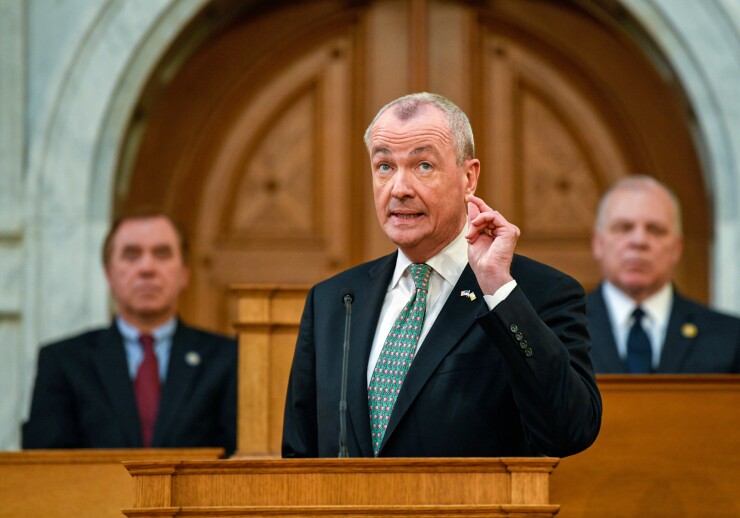Despite meeting its annual pension fund obligations in full this year for the first time since 1997, New Jersey's $100.6 billion in unfunded liabilities threaten to overshadow recent positive economic momentum and harm its long-term credit outlook, according to a report published last week by S&P Global Ratings.
S&P analysts described the fiscal situation surrounding the pension system — which currently provides post-employment benefits to 800,000 people — as “still generally poor,” despite
While it was a step in the right direction, the first full actuarially based payment in more than a quarter centurydoesn't address underlying issues weakening credit quality, according to the report.

Analysts identified “inflation, pent-up salary growth, and possible benefit changes,” in addition to a large expected growth in the number eligible retirees, as factors likely to snowball program costs over the coming decade, potentially unravelling steady progress made under the current administration's more fiscally conscious approach to long-term financing.
New Jersey’s fiscal picture has changed after Murphy leveraged back-to-back budget surpluses to pay down billions in bonded debt;the state received
However, as the post-COVID economic recovery loses steam and the risk of recession grows, those unfunded liabilities put “pressure on credit worthiness” experts “don't see in a lot of other states,” according to John Kennedy, a credit analyst for S&P who contributed to the recent report.
According to Kennedy, below the state level, municipal governments with “smaller tax bases relative to the size of their pension liability” are struggling to meet annual obligation. In the future they may have a more difficult time “keeping on top of pension obligations...without needing to rely on reserves," he said.
Part of the problem is their inability to prefund liabilities — something that has allowed other states to dedicate local funding to public pensions that provide a cushion against changes in political will, as well as outside economic factors, according to Kennedy.
With no dedicated funding stream other than the state’s lottery winnings, successive administrations shortchangedpension contributions for a quarter of a century. They will likely continue to do so unless some type of a mandate is put in place, according to Thomas Healey, former chairman of the New Jersey Pension and Health Benefit Study Commission, assistant secretary of the treasury for domestic finance under President Reagan, and current contributor to the City Journal.
“It's going to require 20 more years of making almost $6 billion a year in payments to get the pension up to the point where it's 80% funded,” Healey said. “The worry I have is, do we have the political discipline to do that every year?”
Though not required under federal law, other states have developed systems helping to ensure they make minimum annual pension payments no matter who is in power.
New York, where an elected comptroller is in charge of pension payments, has "always made their pension payments,” according to Healey, “because the governor and the legislature can't divert them.”
New Jersey’s unfunded pension liabilities are among the highest in the nation and will continue to negatively affect the state’s credit outlook going forward, according to the report.





